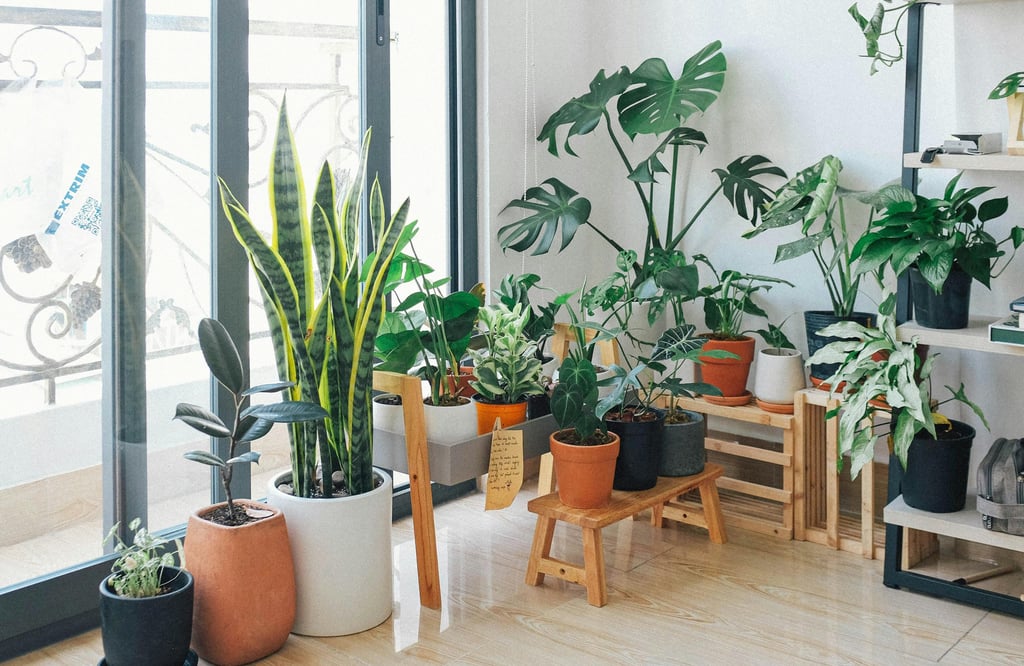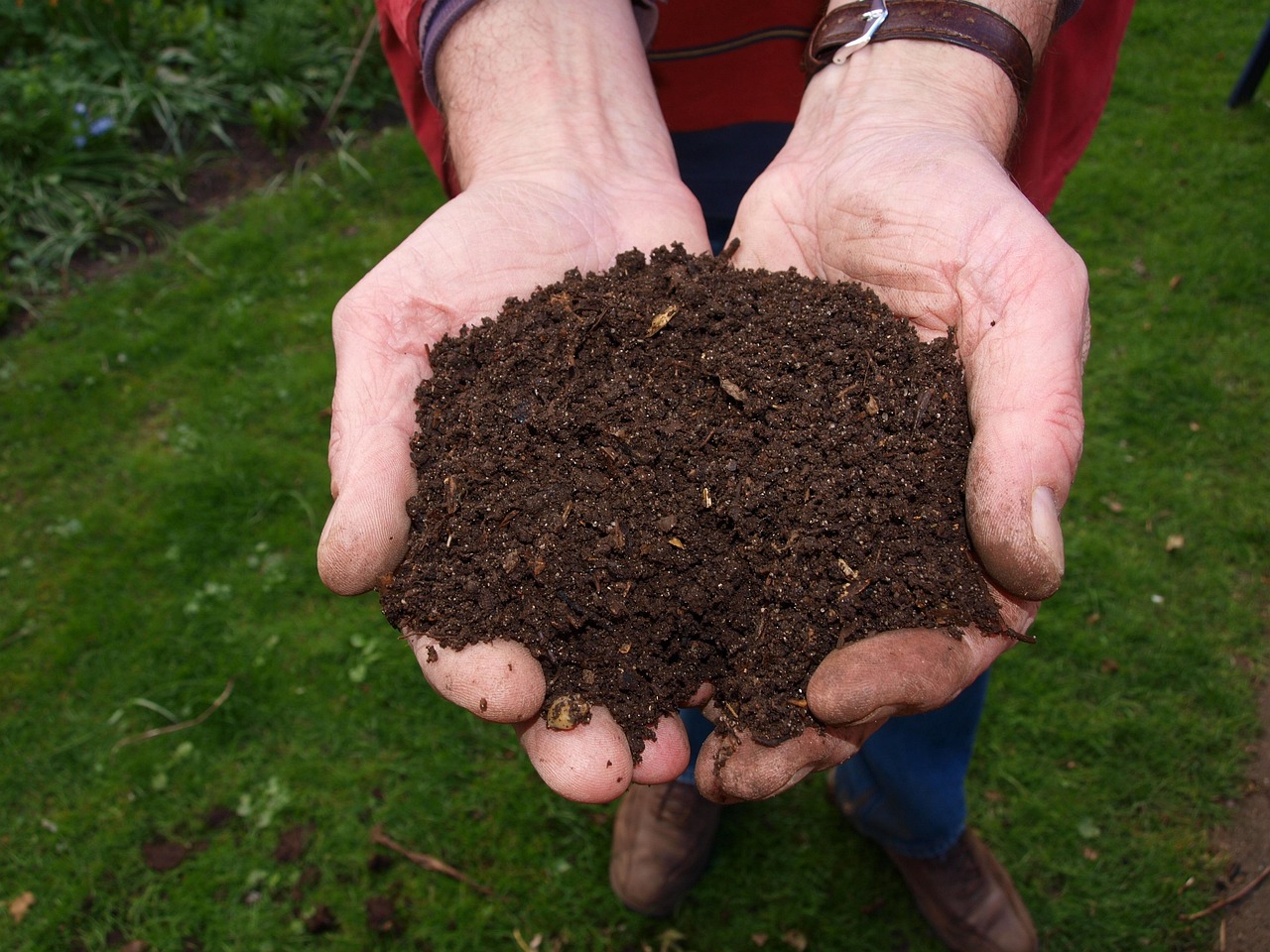Not All Compost is Created Equally
In homes where innovation meets sustainability, every detail matters, even the quality of the soil that nurtures your garden. A nutrient-dense, living soil not only supports robust plant growth but also enhances the overall aesthetic and health of your green spaces. For the discerning homeowner who values both luxury and environmental responsibility, understanding their soil is a game changer.
Rushali Mariam
3/19/20253 min read


What is Regenerated Soil?
Not all soil additives are created equal. The wrong blend can lead to imbalances that affect plant vitality, while a premium, well-engineered soil enriches the ecosystem. High-quality regenerated soil is designed to retain essential nutrients such as nitrogen, phosphorus, and potassium, and is teeming with beneficial microorganisms. These natural allies work tirelessly to break down organic matter, improve water retention, and strengthen soil structure, all without the mess or inconvenience of traditional composting.
Comparing Output from Various Wet Waste Recyclers
Wet waste recyclers have revolutionized how we convert kitchen scraps and yard waste into valuable compost. However, the quality of the output can vary significantly between different systems. Many conventional systems focus on speed and volume, sometimes at the expense of nutrient retention. The compost produced by some wet waste recyclers may be less rich in microbial diversity or may not fully decompose into the stable, moist material suitable for plants.
Several wet waste recyclers focus primarily on dehydration, aiming to reduce the moisture content of your kitchen and yard waste quickly. Unfortunately, this process can strip the organic integrity of the material, leaving behind dehydrated food scraps. These scraps often miss the essential nutrients necessary for soil fertility. When you use such a product, you may find that your plants don’t receive the nutrition they need and their health remains compromised.


How to Evaluate Soil Quality at Home
You do not need a lab or a scientist to assess the quality of your regenerated soil. Here are some simple steps that can help you evaluate whether your regenerated soil is ready for your garden:
Look and Feel: Premium soil should feel crumbly, dark, and rich—much like the loamy texture found in nature’s finest gardens. It should lack any visible remnants of raw waste.
Smell: A fresh, earthy scent signals that the soil is alive with beneficial organisms. Any off-putting, chemical-like odors may indicate an imbalance or incomplete process.
pH Balance: Ideal soil typically falls between a pH of 6 and 8. You can use a simple pH testing kit from a garden center to check if your soil is in this range.
Nutrient Content: A refined nutrient profile, obtained through a simple home test or analysis kit, confirms that the soil is densely packed with the essential elements for plant growth.
Moisture Content: The soil should be moist but should be far from soggy. Excess moisture can lead to anaerobic conditions, which might cause the soil to develop an unpleasant odor and a less desirable nutrient profile.
By evaluating these factors, you can ensure that your output from your wet waste recycler is a positive addition to your garden’s ecosystem.
The Future of Wet Waste Recycling
Chewie’s Regen Soil is more than just compost, it’s a nutrient powerhouse. Chewie’s innovative wet waste management technology doesn’t just dehydrate your food scraps. Chewie’s output, Regen Soil, is not simply compost, it is a living, nutrient-dense output that closely resembles natural, healthy soil. Through a carefully controlled process, Chewie preserves essential nutrients. The result is a product that supports root development, improves water retention, and promotes overall plant health.
The Bigger Picture: Convenience, Plant Health, and a Lower Carbon Footprint
Integrating a wet waste recycler into your daily routine brings a trifecta of benefits. First, it makes your life more convenient by reducing the hassle of organic waste disposal. Instead of dealing with overflowing bins or frequent trips to garbage trucks or waiting for the municipal authorities to collect your waste, a wet waste recycler handles everything on-site.
Second, by converting your wet waste into a nutrient-rich output, wet waste recyclers enhance soil fertility naturally. This means you are less reliant on chemical fertilizers, which can be harmful to both the environment and your local water supply. With regenerated soill, your garden can flourish with healthier plants, increased yields, and a vibrant ecosystem of soil life.
Lastly, using a wet waste recycler like Chewie significantly reduces your carbon footprint. By diverting organic waste from landfills, where it would generate methane, a potent greenhouse gas, you are contributing to cleaner air and a healthier planet. It is an impactful way to participate in the fight against climate change, all while enjoying the benefits of convenience and a thriving garden.
Whether you are looking to simplify waste management, enrich your garden, or reduce your environmental impact, investing in a wet waste recycler is a smart move. With every batch of regenerated soil, you are not just feeding your garden, you are cultivating a greener, more sustainable future. Embrace the power of high-quality soil and let your garden thrive with the natural, nutrient-packed goodness that only a dedicated wet waste recycler can provide. Explore the possibilities with Chewie and watch your garden transform into a vibrant, sustainable haven.
Support
E: social@mankomb.com
M: 9739243943 (9am-5pm)
Connect
Connect. Follow. Stay connected
Copyright © 2025 | Mankomb Technologies | All Rights Reserved
